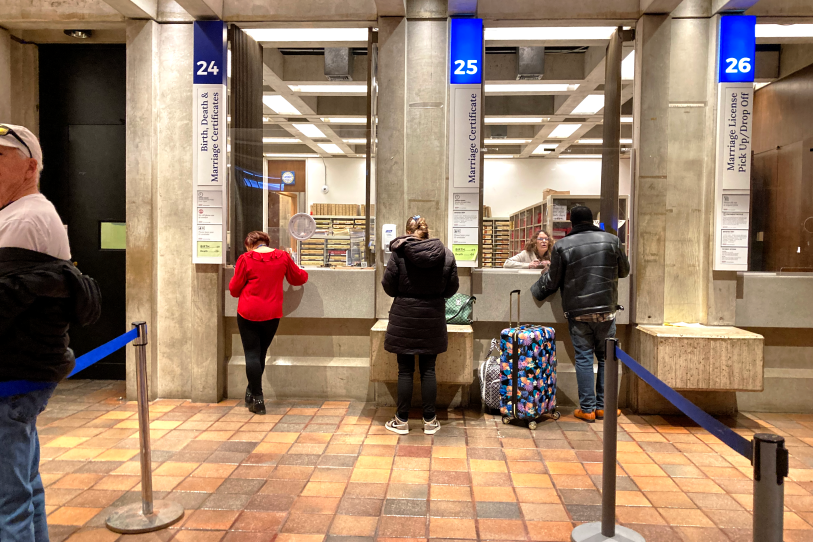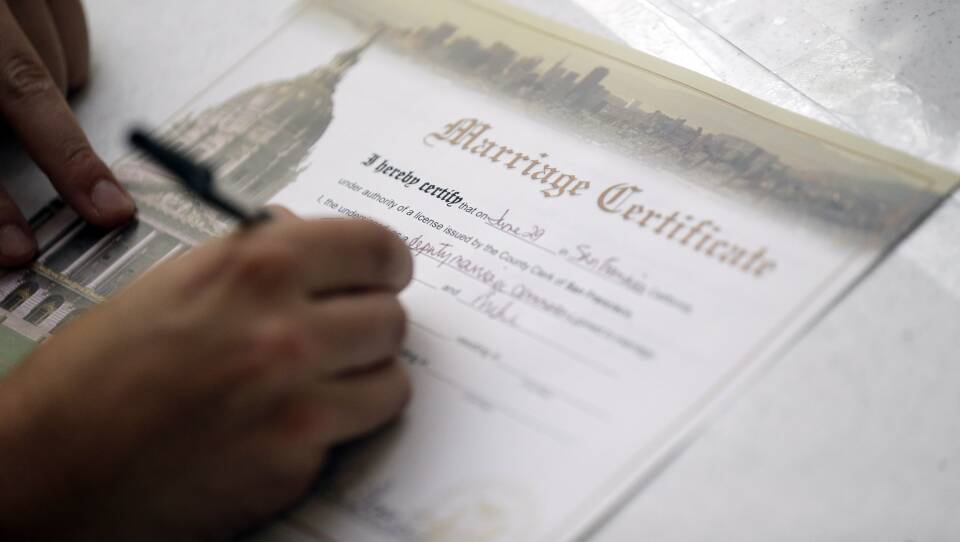The city of Boston announced new gender-aware guidelines on Tuesday that aim to make city services more inclusive to queer residents.
The new guidelines include updated instructions for how and when city employees can ask about gender and sexual identity, with an emphasis on only collecting that data when absolutely necessary. The guidelines also remove the requirement for couples to disclose their gender identity when applying for a marriage certificate.
At a press conference Tuesday, Mariangely Solis Cervera, Boston’s chief of equity and inclusion, spoke about the importance that language and gender inclusivity have on residents’ lives.
“It is our responsibility as city officials and as elected officials to ensure that in every program, survey, practice, and policy, we are looking at the whole picture rather than just one goal,” she said. “This process has taught us so much about what the community really needs and wants, and we are committed to build on this.”
Kimberly Rhoten, the director of policy and strategic initiatives at the mayor’s Office of Returning Citizens, was honored with the city’s first marriage certificate to not include gender identity information.
Rhoten said they have “eagerly awaited” a time where government institutions recognize their gender identity, as well as the identities of others.
“For many, a marriage is a symbol of love and commitment, but unfortunately for people like me, the certificate’s outdated and narrow gender markers were a glaring reminder that our city still had a long way to go in acknowledging our existence,” said Rhoten, who is nonbinary.
“With threats against the LGBTQ community unfortunately intensifying across the country, Boston has thankfully sent a different message,” they added. “A message of inclusion, equality and respect.”

Julia Gutiérrez, the city’s chief digital officer, helped craft the guidelines. She says that officials focused on community feedback and developing standards that reflected residents’ lived experiences. That process involved talking to transgender and nonbinary constituents about when they encountered “gendered language and gendered processes” in Boston’s government.
Officials then took these findings, paired them with expert feedback and established research on gender, sexual orientation and data collection practices in order to develop guidelines that suggest language and appropriate times for city employees to ask about gender and sexual identities in a way that minimizes harm for residents.
“Today, we're announcing the launch of these standards, as well as the beginning of the ongoing process to gather feedback. Everybody who visits Boston.gov will be able to share feedback — either directly on the site, or by emailing us at techgovernance@boston.gov ,” she said.
In much the same way that inclusive language evolves, Gutiérrez says she anticipates these guidelines to evolve over time as officials further refine how to apply gender and sexual identity inclusivity throughout city services.





